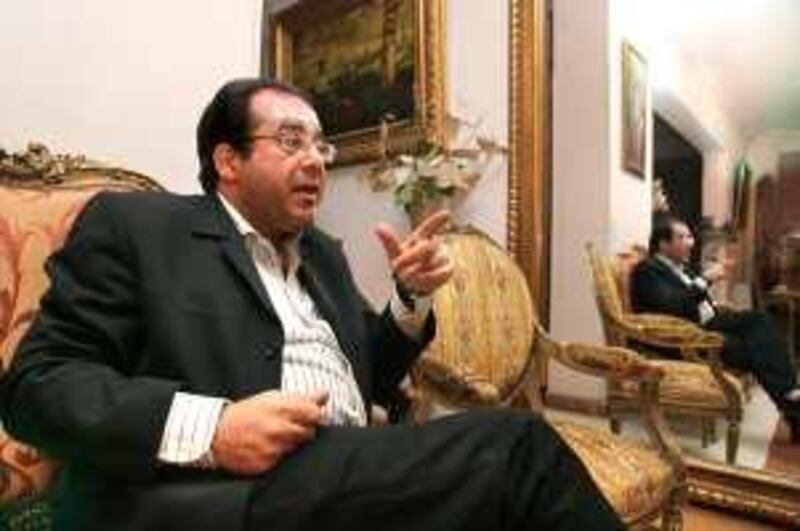CAIRO // All the recent news, good and bad, concerning the opposition in Egypt is attributed by some here to one thing: US President Barack Obama's visit to Egypt this week. On May 25 an appeals court overturned the conviction and two-year prison sentence of Saad Eddin Ibrahim, an Egyptian-American dissident accused of damaging Egypt's reputation.
A week earlier Mr Ibrahim, 70, was acquitted in another case brought against him two years ago. "I hope there is no relationship between my acquittal and Obama's upcoming visit to Egypt," said Mr Ibrahim in a phone interview last week from Harvard University, where he is teaching during his self-exile in the United States. "I want our judiciary to be independent. Besides I'm innocent of the charges in these absurd cases, which are inappropriate for a country like Egypt.
"There is a big possibility that the acquittal in these two cases came as a result of political pressure, but I have no information." Mr Ibrahim was sentenced in August to two years in prison for "tarnishing Egypt's reputation", ostensibly as a result of a two-year worldwide campaign to draw attention to human rights violations and political repression in Egypt. His activities prompted various individuals in Egypt, mainly members of the ruling party, to file civil cases against him, some demanding his citizenship be annulled. Ayman Nour, 44, another prominent opposition leader is recovering at home after being attacked last month by an assailant who ignited a flammable substance in his face, leaving his forehead and the front of his hair burnt.
Mr Nour attributed the attack to his announcing that he plans to run in presidential elections in 2011. "It's OK to be in the opposition in Egypt as long as you don't present yourself as an alternative to the regime, then they are ready to cut your neck," he said, surrounded by his two sons and Ihab el Khouli, the leader of al-Ghad Party, which Mr Nour founded four years ago. "You would think that such stupid acts shouldn't have happened before Obama's visit, but who knows how does this regime think and operate. I think there are several wings that are not co-ordinating well together," he added. Mr Nour was released from prison in February after spending more than three years behind bars on forgery charges, which he claimed were politically motivated.
The imprisonments of the two men raised tensions between Egypt and the US, with the latter criticising the verdicts and Egypt insisting they were internal issues. "The government is trying to kill two birds with one stone in the case of Saad Eddin Ibrahim," said Gamal Eid, a human rights lawyer and director of the Arabic Network for Human Rights Information. "To correct a wrong verdict that was violating the law and, at the same time, makes a good gesture move for Obama before his visit," he said, adding that there are up to nine similar cases pending against Mr Ibrahim, which he considered to be "scandalous for Egypt".
Abdel Moneim Saeed, a leading member of the ruling National Democratic Party, denied that Mr Ibrahim's release had anything to do with the US president's visit. "Egypt has independent judiciary and the ruling has no political motives." Egyptian authorities arrested 33 Muslim Brotherhood members, including some senior members, nearly three weeks ago, which some of the group's leaders said was an attempt to discourage Mr Obama from meeting them.
"The arrests are a pre-emptive strike before American President Barack Obama's visit to Egypt ? It's a message to Obama that we are a banned group, especially after some American research centres and media urged him to meet our members," Mohammed Habib, the deputy leader of the group, said in an interview after the arrests. nmagd@thenational.ae





